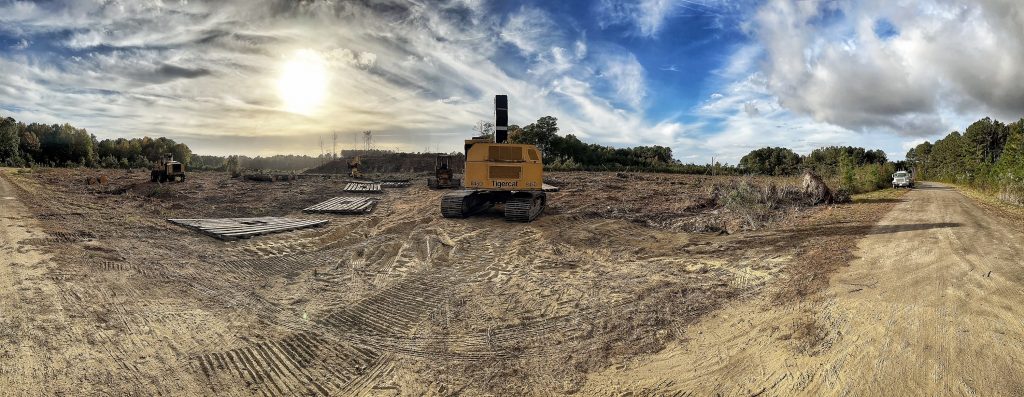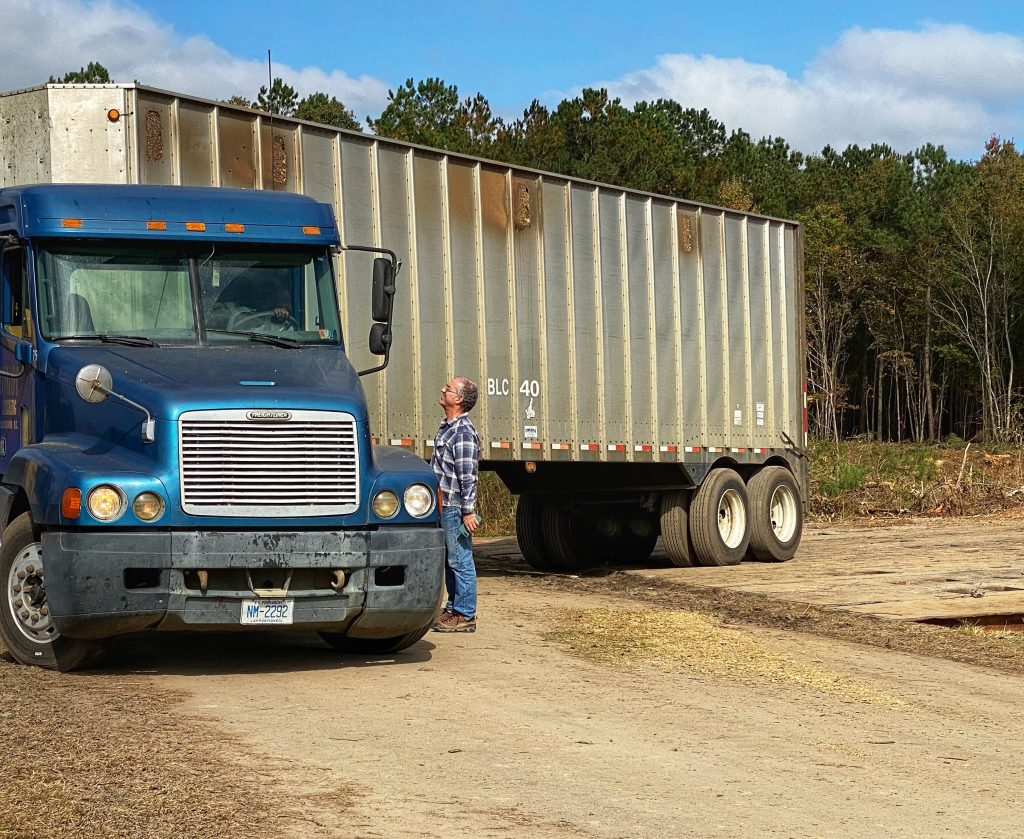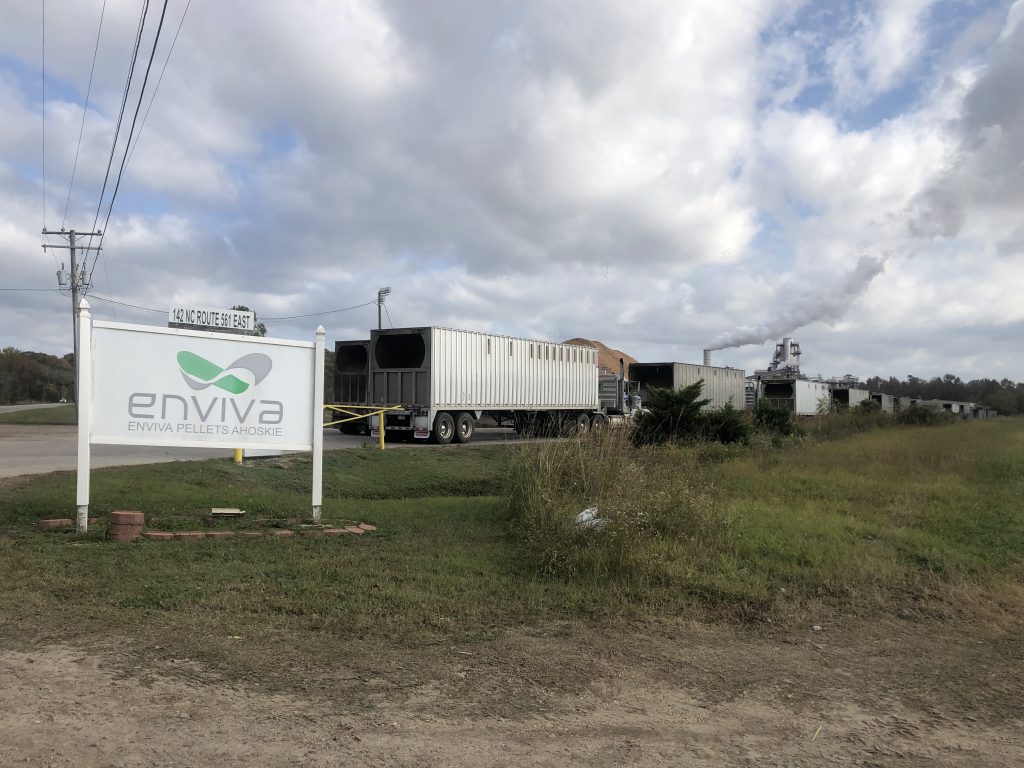
Two weeks before this photo was taken in Edenton, North Carolina, a small town in the state’s coastal plain, this 52-acre site was a densely wooded, biodiverse forest. It was clear cut in part to feed Enviva’s nonstop, bottomless demand for trees for wood pellets in the US Southeast. Enviva says this is a climate-friendly solution to energy production; the world’s top forest ecologists argue otherwise.
This story — the first of its kind ever written about the global biomass industry — started with an email in spring 2022 forwarded to me through the Mongabay web site. A well-placed source at Enviva, the world’s largest producer of wood pellets for industral-scale energy, wanted to talk. “I’m sick of the lies,” he wrote.
Over the course of the next several months, the source and I spoke many times at length. He shared with me his unique and powerful insider view of a company that claims one set of principles and priorities to the public, to regulators and to investors when it comes to wood harvests, and by all appearances, largely does the opposite.
To verify much of what this source was telling me over the summer and fall, I traveled to Edenton in eastern North Carolina in November 2022 with my friend and colleague Bobby Amoroso to observe a clear cut taking place on 52 acres of city-owned land. There I witnessed illustrations of Enviva’s apparent double talk about sustainable wood harvesting.
With the expert production work of Sandy Watt in London, we produced this YouTube video to summarize and complement my exclusive report for Mongabay.
The reporting for this story was extensive. It was also full, fair and thorough. I spent nearly 30 minutes on the phone with an Enviva communications staffer and explained to her, in detail, the story I was preparing and the reporting I had completed. Enviva chose to respond in writing. But I went further. I researched Enviva’s web site to show the message it puts out to the public. I interviewed an independent forester who believes, on balance, that Enviva is replacing demand for wood in eastern North Carolina, not increasing demand. I ignored allegations made against the company that I could not adequately verify to my own professionals standards. And I also made compelling use of a new study by the Southern Environmental Law Center that for the first time quantifies Enviva’s growing impact on forest cover within the wide harvest area of three wood-pellet mills in eastern NC and southern Virginia.
Why is this story important? Intact forests are the best and most effective planetary means we have of slowing the rate of global warming and mitigating the impact of climate change. The second-most important thing we can do is reduce carbon emissions from energy production. Science shows that the global biomass industry undermines both of these vital goals, and it will only get worse as pellet demand continues to grow in the UK, EU and Asia.
If you are new to the issue of biomass for energy and the controversy that has surrounded this growing industry for a decade, I encourage you to read this story and watch the video. A special thanks to Gizmodo for reporting on my story and Yahoo News for spreading it farther and wider. And thanks also to the Pulitzer Center in Washington, D.C., which has sponsored some previous wood pellet reporting of mine, for including this story and others in its December newsletter.
Mongabay also had my story translated into German. That link is here.



